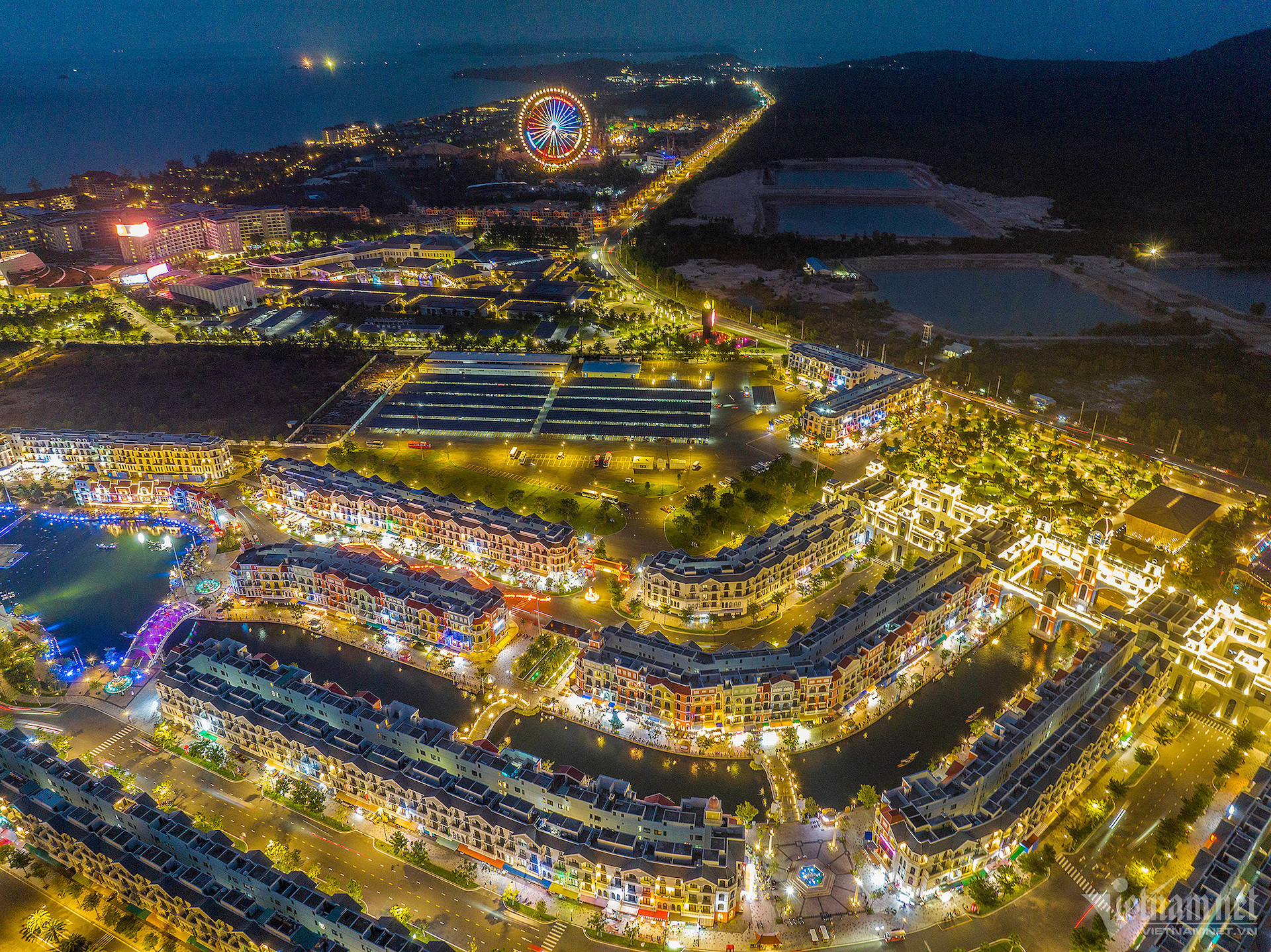
Phu Quoc is the largest island in Vietnam with natural area of 58,927.50 hectares. The city has favorable climate conditions with long coastline surrounding the island, many beautiful beaches, hills and mountains and primeval forests, and fresh water, enough to ensure people’s daily life and production development.
Phu Quoc has surface water area bordering ASEAN countries, near the international shipping route from East to West, just two hours of flight from the capitals of ASEAN countries, close to developed tourism and industrial centers of regional countries.
Phu Quoc is a co-ordinated development axis differentiated in terms of potential, development advantages, investment attraction capacity, and growth.
At present, Phu Quoc applies common policies designed for the whole country. The policies for Phu Quoc are not special and groundbreaking enough to allow the city to promote its strength and potential..
During its development process, Phu Quoc has been facing many difficulties, obstacles and restrictions in policies and resource allocation.
Phu Quoc City has been operating within the institutional framework of a district-level administrative unit, with a very high level of dependence on policies and budgets.
This institutional framework is one of the reasons restricting the capability of Phu Quoc,, and narrowing development opportunities which can be of national and international stature.
Meanwhile, Phu Quoc deserves to be a locality with higher importance and larger stature. It is necessary to create favorable conditions to obtain outstanding achievements, and affirm its status as a powerful influence in international integration and competition.
Helping Phu Quoc obtain outstanding development should be seen as a national mission and a prioritized strategic task for the entire Mekong River Delta and the whole country, not just a task of Kien Giang and not just for the city alone.
The city needs to be given the mission of pioneering and accelerating improvement of international competitiveness, especially in the fields of service and tourism in the immediate time.
The major solution is to help Phu Quoc reach a higher level of autonomy and decentralization.
Suggested policies
With its advantages, Phu Quoc should choose to develop into a high-end tourism market for middle-class travelers and for people who want to live clean and green. In addition, Phu Quoc should prioritize a digital economy and AI (artificial intelligence).
Phu Quoc needs to be given preferential mechanisms, support in resources, and the right to pilot outstanding models and policies which can create a driving force for Phu Quoc to make a strong rise, with focus on:
First, prioritizing support (mechanisms, policies) to create a better business environment, rather than asking for ‘privileges’ (increases in receipts and reductions in spending, beneficial local budget; more capital allocated to small projects). The support will be extremely important in the next development stages, when Phu Quoc can shape modern development foundations and has a good business environment.
Phu Quoc should ask for good mechanism and groundbreaking projects, such as airport and international maritime tourism port development, digital infrastructure development, ecosystem formation and sustainable-green-clean development projects.
To facilitate Phu Quoc’s strong rise in the first phase (by 2030, for example), the central government should offer specific mechanisms, including the local contribution to the state budget and the right to make decisions for land and projects.
The most important thing that determines Phu Quoc’s growth is beyond-the-frame policies, including entry/exit policy, autonomy in staffing, and sandbox regime for hi-tech zones and night-time economy.
Under current regulations, foreigners entering Phu Quoc enjoy visa exemption for 30 days. The regulation should be changed by allowing foreigners to enter/exit Phu Quoc with visa exemption for 90 days.
Second, the central government needs to turn Phu Quoc into a special national island city, i.e., it no longer belongs to Kien Giang province and it has independent administrative unit status.
Third, it is necessary to increase power and give greater autonomy to Phu Quoc in terms of budget, deciding on investment projects and selecting investors, personnel and organizational structure.
Lan Anh